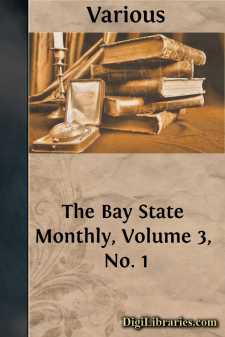Categories
- Antiques & Collectibles 13
- Architecture 36
- Art 48
- Bibles 22
- Biography & Autobiography 816
- Body, Mind & Spirit 145
- Business & Economics 28
- Children's Books 17
- Children's Fiction 14
- Computers 4
- Cooking 94
- Crafts & Hobbies 4
- Drama 346
- Education 58
- Family & Relationships 59
- Fiction 11834
- Foreign Language Study 3
- Games 19
- Gardening 17
- Health & Fitness 34
- History 1378
- House & Home 1
- Humor 147
- Juvenile Fiction 1873
- Juvenile Nonfiction 202
- Language Arts & Disciplines 89
- Law 16
- Literary Collections 686
- Literary Criticism 179
- Mathematics 13
- Medical 41
- Music 40
- Nature 179
- Non-Classifiable 1768
- Performing Arts 7
- Periodicals 1453
- Philosophy 66
- Photography 2
- Poetry 897
- Political Science 203
- Psychology 45
- Reference 154
- Religion 516
- Science 126
- Self-Help 85
- Social Science 82
- Sports & Recreation 34
- Study Aids 3
- Technology & Engineering 59
- Transportation 23
- Travel 463
- True Crime 29
Our website is made possible by displaying online advertisements to our visitors.
Please consider supporting us by disabling your ad blocker.
The Bay State Monthly, Volume 3, No. 1
by: Various
Categories:
Description:
Excerpt
CHARLES CARLETON COFFIN.
Among the emigrants from England to the western world in the great Puritan exodus was Joanna Thember Coffin, widow, and her son Tristram, and her two daughters, Mary and Eunice. Their home was in Brixton, two miles from Plymouth, in Devonshire. Tristram was entering manhood's prime—thirty-three years of age. He had a family of five children. Quite likely the political troubles between the King and Parliament, the rising war cloud, was the impelling motive that induced the family to leave country, home, friends, and all dear old things, and become emigrants to the New World. Quite likely Tristram, when a youth, in 1620, may have seen the Mayflower spread her white sails to the breeze and fade away in the western horizon, for the departure of that company of pilgrims must have been the theme of conversation in and around Plymouth. Without doubt it set the young man to thinking of the unexplored continent beyond the stormy Atlantic. In 1632 his neighbors and friends began to leave, and in 1642 he, too, bade farewell to dear old England, to become a citizen of Massachusetts Bay.
He landed at Newbury, settled first in Salisbury, and ferried people across the Merrimack between Salisbury and Newbury. His wife, Dionis, brewed beer for thirsty travellers. The Sheriff had her up before the courts for charging more per mug than the price fixed by law, but she went scot free on proving that she put in an extra amount of malt. We may think of the grave and reverend Justices ordering the beer into court and settling the question by personal examination of the foaming mugs,—smacking their lips satisfactorily, quite likely testing it a second time.
Tristram Coffin became a citizen of Newbury and built a house, which is still standing. In 1660 he removed with a portion of his family to Nantucket, dying there in 1681, leaving two sons, from whom have descended all the Coffins of the country—a numerous and widespread family.
One of Tristram's decendants, Peter, moved from Newbury to Boscawen, New Hampshire, in 1766, building a large two-storied house. He became a prominent citizen of the town—a Captain of the militia company, was quick and prompt in all his actions. The news of the affair at Lexington and Concord April 19,1775, reached Boscawen on the afternoon of the next day. On the twenty-first Peter Coffin was in Exeter answering the roll call in the Provincial assembly—to take measures for the public safety.
His wife, Rebecca Hazelton Coffin, was as energetic and patriotic as he. In August, 1777, everybody, old and young, turned out to defeat Burgoyne. One soldier could not go, because he had no shirt. It was this energetic woman, with a babe but three weeks old, who cut a web from the loom and sat up all night to make a shirt for the soldier. August came, the wheat was ripe for the sickle. Her husband was gone, the neighbors also. Six miles away was a family where she thought it possible she might obtain a harvest hand. Mounting the mare, taking the babe in her arms, she rode through the forest only to find that all the able-bodied young men had gone to the war....












